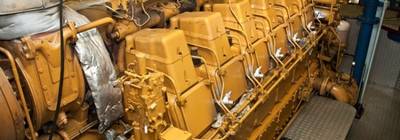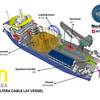New Module Training Series
The training series Design of Marine Auxiliary Systems have been expanded with a new module: ‘HVAC and refrigeration systems’ (module 4). This new module provides the participants with the knowledge required to design these systems and perform the necessary calculations in order to do so. The fundamental working principles as well as design considerations and the rules concerning these systems are all covered. The course consists of 4 separate modules. The first module starts on March 7 and 8, 2016 in Rotterdam.
The entire training series Design of Marine Auxiliary Systems cover the main aspects of marine auxiliary systems on board of vessels or offshore platforms. The series starts in March and registration is now open. The first module ‘Introduction Systems Architecture’ provides an overview of the different auxiliary systems, their functions, components and characteristics. The second module ‘Fundamentals of Pumps, Compressors, Heat Exchangers’ will give insight into the fundamental working principles of these key components of the auxiliary systems. The third module ‘System Engineering’ enables the participants to perform all calculations required for the design of auxiliary pipe flow systems. The new fourth module on 'HVAC and refrigeration systems' is a perfect and logical addition to this series.
- Module 1 - Introduction Systems Architecture: 7th & 8th March 2016
- Module 2 - Fundamentals Pumps, Compressors and Heat Exchangers: 5th & 6th April 2016
- Module 3 - System Engineering: 9th & 10th May 2016
- Module 4 - HVAC and refrigeration systems: 13th & 14th June 2016
Lecturers
The main lecturers of this training series are professor Douwe Stapersma MSc and assistant professor Peter de Vos MSc of Delft University of Technology. The first module is executed in combination with Econosto Nederland BV. The fourth module on ‘HVAC’ is developed and given together with Patrick Voorn and Raymond Cordier de Croust, who both have extensive experience with the design of HVAC systems in a marine context.













